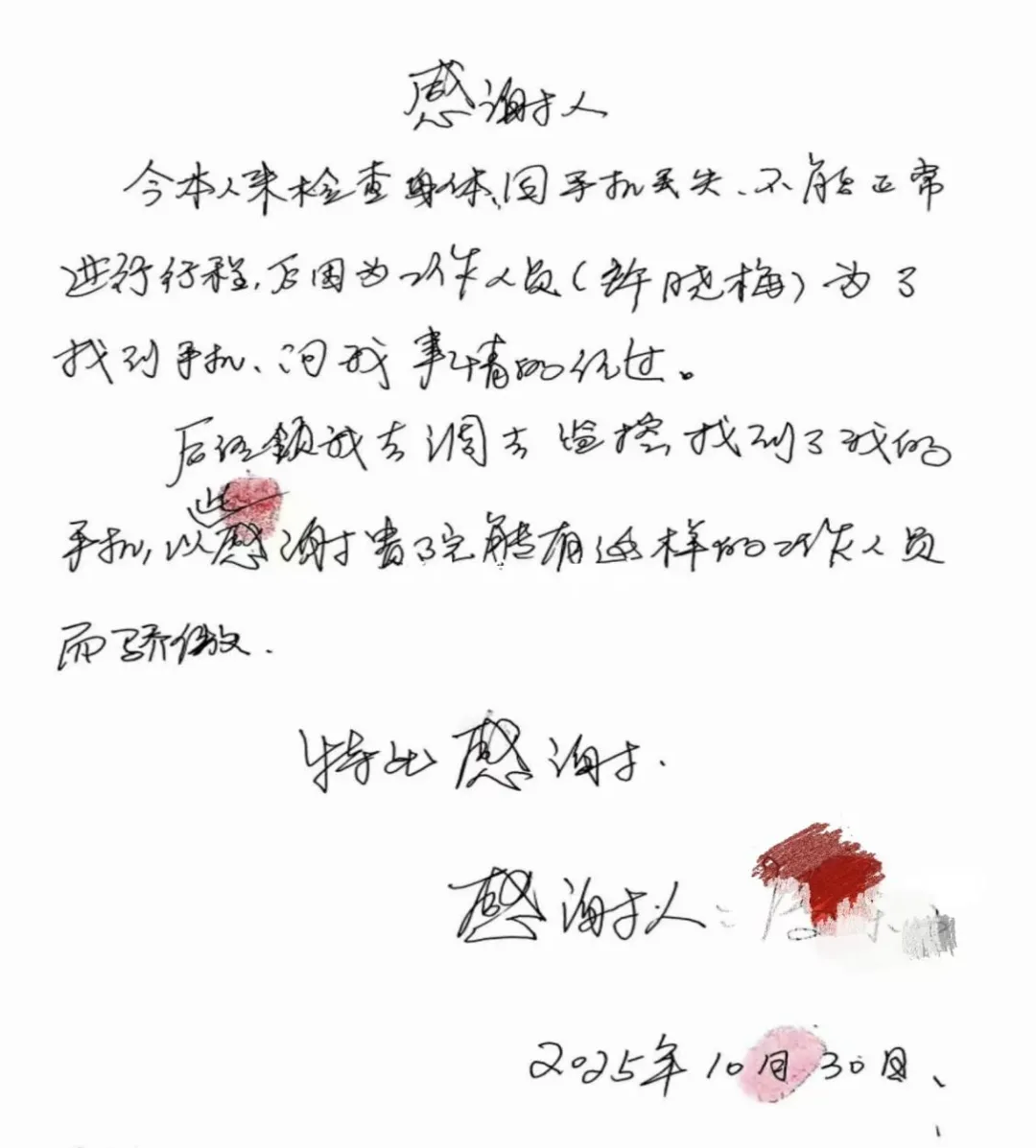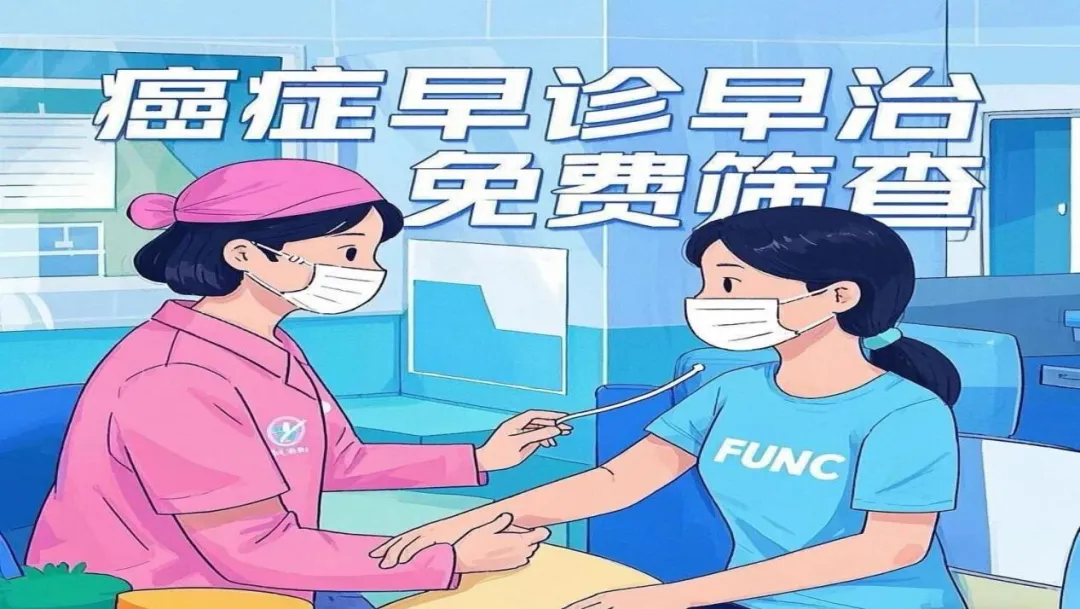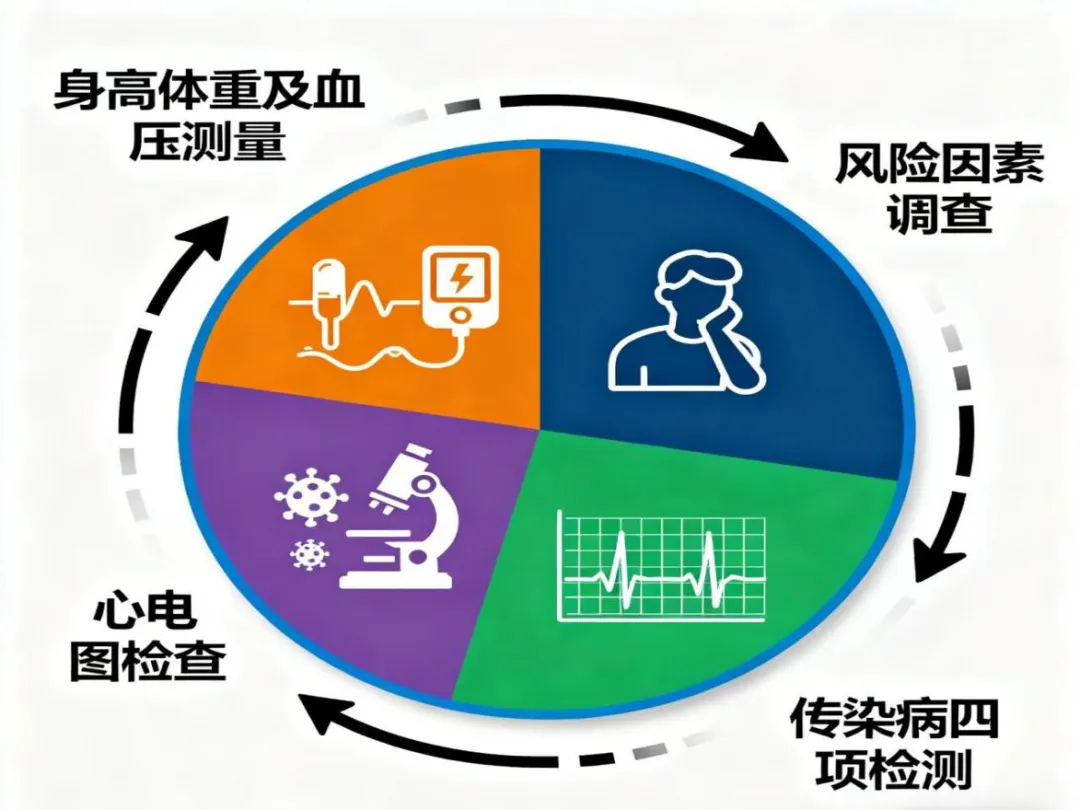Warmth Beyond Medical Care: The Compassion in a Thank-You Letter
Warmth Beyond Medical Care: The Compassion in a Thank-You Letter
The Warmth of Medicine Lies Not Only in Precise Diagnosis—But in Every Thoughtful Act of "Addressing Patients’ Urgent Needs"
The Heartwarming Bond Behind a Thank-You Letter
The warmth of medicine is not just embedded in precise diagnosis and treatment—it shines brighter in every thoughtful gesture of "stepping into patients’ shoes." Recently, our hospital received a thank-you letter from a patient who underwent upper gastrointestinal cancer early diagnosis and treatment screening. The letter brimmed with sincere gratitude toward Xu Xiaomei, a staff member of the Epidemiological Investigation Office under our Public Health Department—and it bore witness to heartwarming, mutual care between doctors and patients.
On October 30, 2025, while participating in upper gastrointestinal cancer early screening at our hospital, Mr. Ma accidentally lost his phone. After repeated searches yielded no results, he grew frantic—the device held a trove of critical information and contact details. Just as he felt at a loss, he turned to hospital staff and was met by Xu Xiaomei, a staffer known for her unwavering sense of responsibility.
Upon learning the situation, Xu first calmed Mr. Ma down, patiently asking about his movements and the areas he had visited. She quickly coordinated with the Security Department to retrieve surveillance footage, then scanned the videos frame by frame to track Mr. Ma’s path—leaving no stone unturned. Through meticulous investigation, she finally located the phone and returned it to him. Deeply moved by this recovery, Mr. Ma wrote this thank-you letter to our hospital. In it, he not only praised Xu Xiaomei’s dedicated work ethic but also spoke highly of our hospital’s long-standing philosophy of "patient-centered care."
Upper gastrointestinal cancer early diagnosis and treatment screening is a vital line of defense for public health—and Xu Xiaomei’s warm act is a vivid embodiment of our hospital’s "patient-first" ethos. From professional medical screening to thoughtful daily services, from rigorous clinical practice to resolving life’s little challenges, our hospital always prioritizes patient needs. We escort every community member’s health with both expertise and compassion.
A thank-you letter carries sincere recognition. Looking ahead, our hospital will stay true to its mission: as we continue to enhance medical technology, advance early cancer screening, and treatment, we will also refine service details. Through more warm, patient-centric initiatives, we aim to make every patient feel at ease and cared for during their healthcare journey—and to safeguard the health and lives of all residents in our jurisdiction!

【Extended Reading】
Overview of the Rural Upper Gastrointestinal Cancer Early Diagnosis and Treatment Program
As a National Major Public Health Program, the Rural Upper Gastrointestinal Cancer Early Diagnosis and Treatment Program has been implemented by our hospital since 2009 and has now spanned 16 years. To date, it has completed cumulative screening for 38,746 cases, covering 189,400 rural residents; 37,576 people underwent preliminary screening, and 763 cases were detected, with an overall detection rate of approximately 2.0%. Among these, 614 cases were early-stage, achieving an early diagnosis rate of 80.47%. Thanks to the continuous advancement of the program, the incidence and mortality rates of gastric cancer in Wuwei City have decreased by nearly half. Shifting the prevention and control focus forward for upper gastrointestinal cancer, strengthening screening among high-risk populations in high-incidence areas, and achieving the "three early" goals—early detection, early diagnosis, and early treatment—have become key strategies to control the simultaneous declinein the incidence and mortality of upper gastrointestinal cancer.
Why is Upper Gastrointestinal Cancer Early Diagnosis and Treatment Screening Necessary?
Early-stage upper gastrointestinal cancer often presents with no obvious symptoms, and most patients are diagnosed at the middle or advanced stages—missing the optimal window for surgical treatment. In China, the vast majority of patients seek medical attention only after experiencing discomfort, resulting in an extremely low rate of active visits among those with early-stage asymptomatic disease.
The effectiveness of cancer treatment is closely linked to the disease stage: the 5-year survival rate for early-stage patients after surgery exceeds 95%, drops to 50%–70% for intermediate-stage patients, and falls below 30% for advanced-stage patients. Treating advanced cancer not only consumes significant medical resources and economic costs but also imposes a heavy burden on society, families, and individuals. It is a major cause of "poverty due to illness"and "return to poverty due to illness"among farmers in some regions, and even restricts local economic development. Therefore, upper gastrointestinal cancer screening holds crucial significancein regional cancer prevention and control planning.

Eligibility Criteria
Residents meeting allof the following conditions may contact us or visit directly to participate in the free upper gastrointestinal cancer screening:
1.Hold rural household registration in Liangzhou District (towns: Xiyin, Kangning, Huaian, Jinshan, Wuhe, Fengle, Qingshui, Huangyang, Gaoba) and have resided in Liangzhou District long-term.
2.Aged 40–69 (age determined by the date of birth on the ID card).
3.Have no prior diagnosis of upper gastrointestinal cancer.
4.Have not participated in our hospital’s upper gastrointestinal cancer screening program before.
Free Screening Services
•Pain-free gastroscopy
•Upper abdominal ultrasound
•Electrocardiogram (ECG)
•Four key infectious disease screenings
•Blood glucose and blood pressure measurement

Screening Location & Contact Information
Screening Location: Flow Investigation Office, Endoscopy Center, Medical Technology and Surgery Building, Heavy Ion Center, Wuwei Cancer Hospital, Wuwei City, Gansu Province
Contact Numbers: 0935-6989265, 0935-6989086
Warm Tips
1.Please fast(no eating or drinking) on the day of screening (patients with hypertension may take medication with a small amount of water). Remember to bring your valid ID card.
2.Since painless gastroscopy requires anesthesia, we strongly recommend:(1) You must be accompanied by a family member.(2) A free shuttle bus will be provided to pick up and drop off you and your family members from the entrance of the Central Campus of Wuwei Cancer Hospital (No. 16 Xuanwu Street, Liangzhou District) to the Heavy Ion Center.(3) For participants over 60 years old, we sincerely request that family members provide support and accompaniment after fully understanding the procedure.
Preliminary Review: Zhang Jie
Final Review: Ma Shuqian
